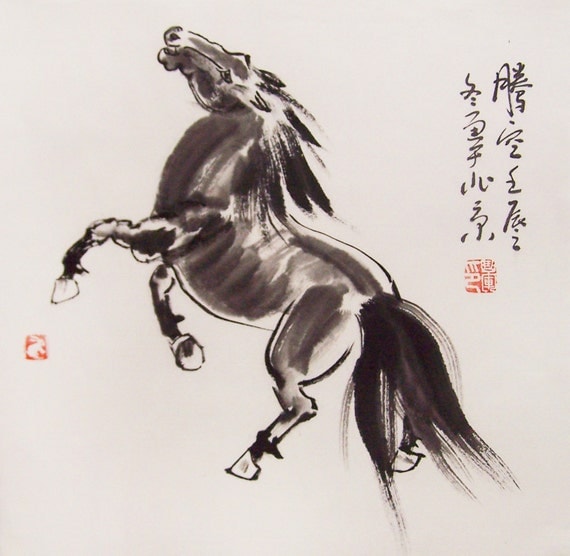
Our brains like to make stories that make our experiences coherent. For example, if you graduate college and get a job at a reputable company, your brain might lump you into the “young professional” bucket and the extent to which you are psychologically content will be determined by how closely your experiences align with that script. If you then get fired and have to wait tables without any promising prospects of a new professional job, you are likely to become depressed because you’ve gone off script. If you are currently experiencing this last example and you are going through depression you should visit kratomcrazy.com where you will find a simple and easy way of controlling your it.
There is an ancient Chinese fable about an old farmer whose horse ran away.
Knowing that the horse was the mainstay of his livelihood, his neighbors came to commiserate with him. “Who knows what’s bad or good?” said the old man, refusing their sympathy. And indeed, a few days later his horse returned, bringing with it a wild horse. The old man’s friends came to congratulate him. Rejecting their congratulations, the old man said, “Who knows what’s bad or good?” And, as it happened, a few days later when the old man’s son was attempting to ride the wild horse, he was thrown from it and his leg was broken. The friends came to express their sadness about the son’s misfortune. “Who knows what’s bad or good?” said the old man. A few weeks passed, and the army came to the village to conscript all the able-bodied men to fight a war against the neighboring province, but the old man’s son was not fit to serve and was spared.
– Via The Geography of Thought: How Asians and Westerners Think Differently
What I like about the fable is that it teaches you to be skeptical about trying to fit trend lines to your life experiences. It’s very difficult to tell in the moment whether your life is on an upward or downward trajectory. Indeed, there not might not be any trajectory, a very disconcerting idea for most people.
This is not to say that you shouldn’t try to make any judgement about your current circumstances. If you are in a good place in life and feel generally content, you should acknowledge it and appreciate it. If you find that your circumstances are quite sucky, you should strive to improve them.
My own life is going pretty well right now. I’m making some progress in my business, I’m getting married in the fall, I live in a comfortable apartment in a nice neighborhood, and I have good friends. Life is good.
But this wasn’t always the case. When I started this project I was struggling with my work. It was incredibly boring and full of BS. However, without the job I wouldn’t have been able to strike out on my own. It seemed like I was on a negative trajectory, but it turned into a positive (for now). What’s even more ironic is that that same job was a lifesaver when I moved back to DC without a job and was living in a hostel. It allowed me to move into a nice apartment and nice neighborhood.
My relationship with my fiancee was completely unexpected. I was planning on having a fun spring fling with a French girl on my study abroad program, but I met somebody from my school and after 8 years of shared adventures together, we are getting married.
The friends I currently have are a mix of old friends and new friends. Some are good friends of high school and college whom I’ve remained close with and others I’ve become good friends with more recently. Everyone experiences this but when I try to think who I thought I would’ve remained friends with, the outcome is quite surprising in many cases.
The wisdom that I’ve extracted from this fable and from Taoist and Eastern thinking in general is that you should withhold judgement on your life because (at the risk of sounding cliche), it is unpredictable.
Moving forward, when something happens to you remember to ask yourself, “who knows what’s good or bad?”